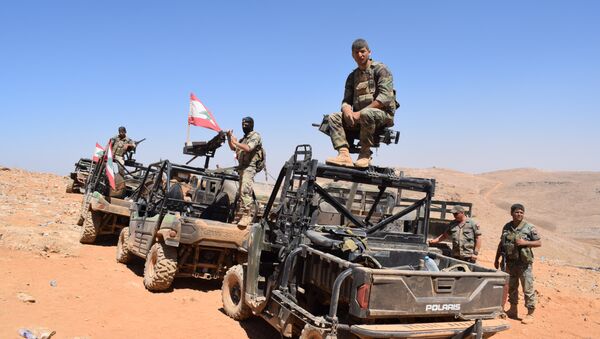On August 30, Lebanese President Mishel Aoun announced the successful conclusion of Operation Jroud Dawn, during which the Lebanese army "proved its might and professionalism."
During the course of this operation, Lebanese armed forces managed to evict Daesh from Raas Baalbak and al-Qaa, mountainous regions located on the border with Syria.
Perhaps no country aside from Syria and Iraq has been greater affected by the ongoing war with Daesh than Lebanon, where the local population of less than five million people has been inundated since 2014 by over a million refugees from its war-ravaged neighbor.
Sputnik Arabic correspondents were able to visit the liberated areas and interview Lebanese soldiers who took part in this military operation.
Operation Jroud Dawn began with the capture of Eqab al-Aesh elevation, which Daesh militants used as a command post as this area afforded them a commanding view of the surrounding territory.
"Our goal was to capture this elevation to disrupt the militants’ communications. We began advancing on foot at 3 a.m. The main problem was that we had to move in the open, so other army units opened fire on the militants to cover our advance. At some point, a group of militants managed to outflank us, but we were able to repel this attack and destroy them. When the elevation was secured, we immediately proceeded to clear it of booby traps and mines," one of the soldiers who took part in the offensive said.
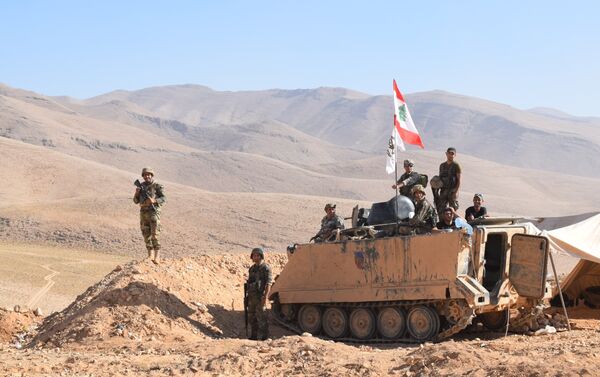
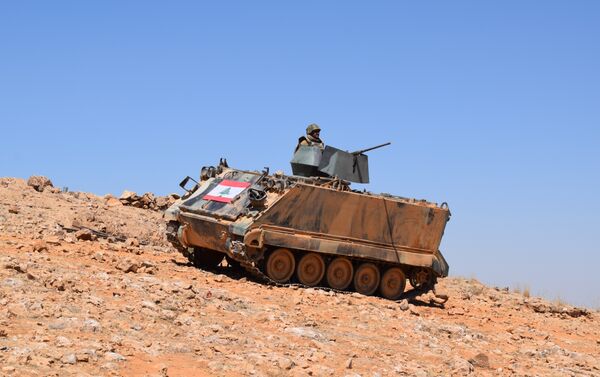
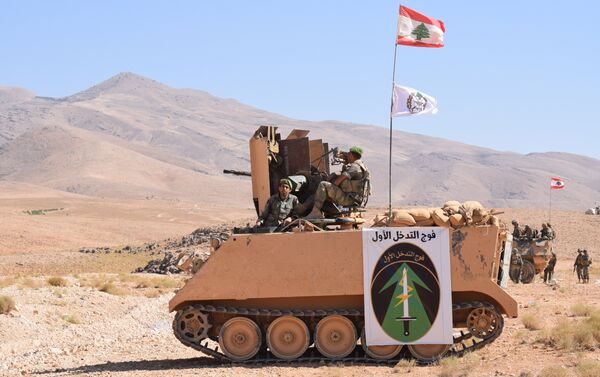
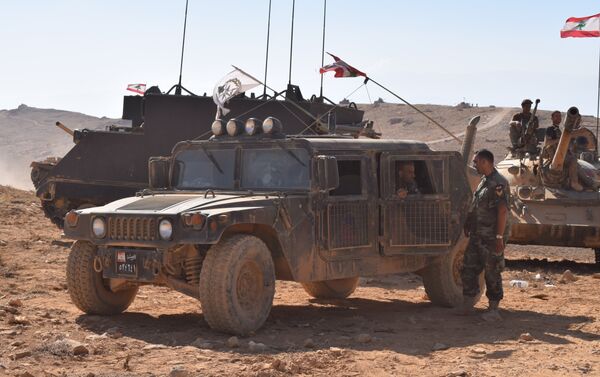
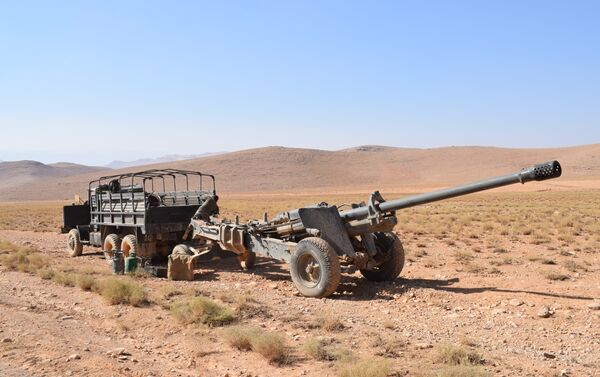
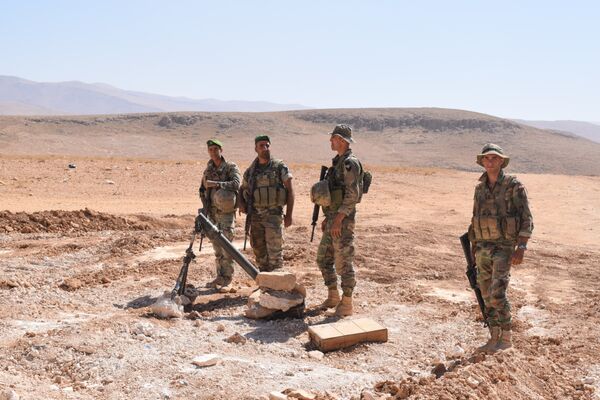
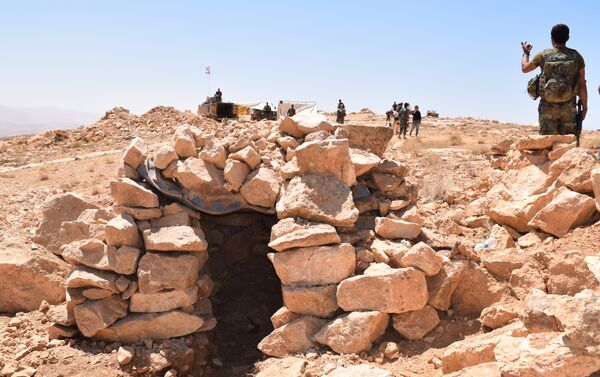
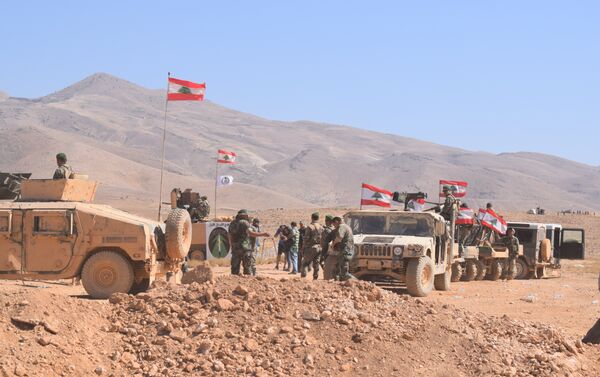
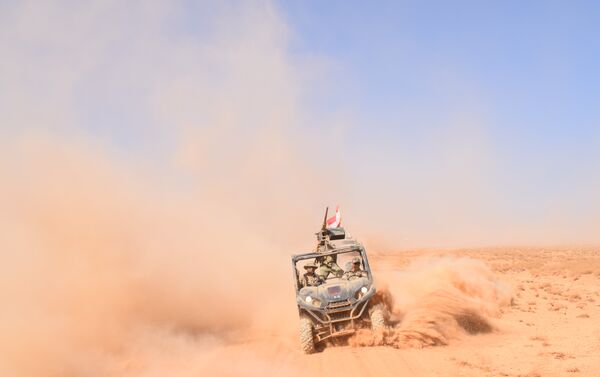
The Raas al-Kuf area was another important target of the Lebanese offensive.
"We employed the element of surprise. The bulk of enemy’s forces were deployed at strongpoints located at the western and eastern sides of the elevation, facing our troops. The command however decided to flank them and to attack from the south, where they’d least expect us. This maneuver allowed us to crush the enemy and to secure this area," another Lebanese trooper explained.
He also added that the mountainous terrain made things difficult both for Daesh forces and for the Lebanese troops: while the terrorists had trouble establishing proper defensive positions, the Lebanese army was unable to deploy armored vehicles and had to attack on foot.
The battle for the Maabar al-Lazzaba area was also one of the pivotal moments of the Lebanese army's offensive.
"Our objective was to secure the area, neutralize the militants and force them to surrender. When the terrorists were facing defeat they sent suicide bombers on motorcycle against us, but we managed to take them out before they reached us. Then we forced the militants to abandon their positions and retreat," the serviceman said.
Lebanese Army General Fadi Daud declared that the might of the Lebanese military stems from “the support of the people and the politicians, and from the soldiers’ intent to fulfill their duty.”
"The army has experience, air superiority, precision and all the necessary hardware – tanks, artillery, etc. And there’s also the wise army leadership that chose the correct strategy and tactics," he said.
General Daud warned, however, that there will be no time to "relax and celebrate until all of Lebanese land is liberated."
Another Lebanese military source told Sputnik that the country’s armed forces now need to "focus on protecting the border to prevent illegal incursions" into Lebanon’s territory and to pay "considerable attention to demining the liberated territories."

